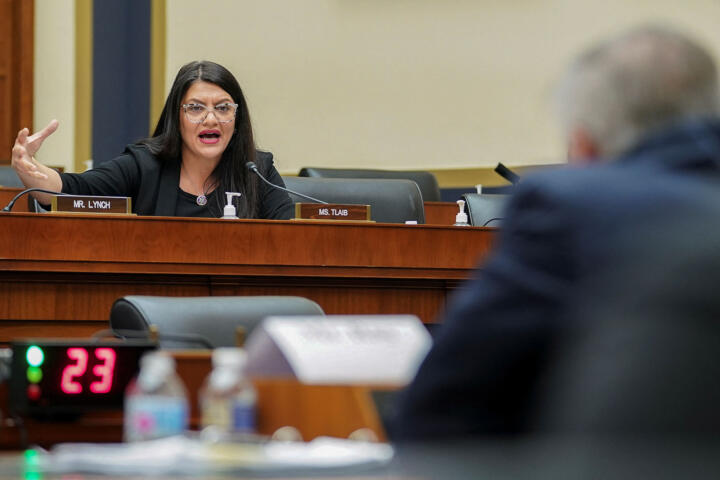The Markup, now a part of CalMatters, uses investigative reporting, data analysis, and software engineering to challenge technology to serve the public good. Sign up for Klaxon, a newsletter that delivers our stories and tools directly to your inbox.
Detroiters pay more for car insurance than almost anyone in the nation — thanks in part to rate-setting practices that have little to do with how they drive. A bill backed by U.S. Rep. Rashida Tlaib (D-Detroit) would outlaw those pricing methods.
The legislation would ban the use of census tracts and credit-based scores — factors that disproportionately raise costs for Black drivers — to set auto insurance rates. The bill was previously introduced in 2023 but died in committee.
Car insurance is mandatory in Michigan. But in Detroit, where the median household income is $38,080, coverage is often unaffordable at an average of $5,300 per year.
An investigation last year by Outlier Media and The Markup found that despite a 2019 Michigan law banning ZIP code-based pricing, insurers continue to use drivers’ location to set rates.
Tlaib’s bill aims to close that loophole.
The legislation would give drivers “a fair shot at getting auto insurance rates that are fair to them, not based on whether they have a high academic degree and a good credit score, but based on what kind of driver they are,” Tlaib told Outlier.
Rates built on factors unrelated to driving, like location, “keep people in a cycle of poverty,” she said. “If you don’t have reliable mass transit … residents need auto insurance to get to work, to get to school, to live their lives.”
Tlaib introduced similar legislation in previous sessions of Congress going back to 2019. The bills forbid insurers from setting rates based on gender, level of education, employment status, homeownership status, ZIP code, adjacent ZIP codes, census tract, marital status or credit-based insurance score, among other factors. The cost of auto insurance remains one of her constituents’ most common complaints, Tlaib said.
Michigan lawmakers banned the use of ZIP codes in rate-setting in 2019. Those reforms were widely criticized for loopholes that seemed to invite insurers to set rates based on other location factors. The reforms did little to reduce costs and nothing to eliminate discriminatory rate-setting, the Markup/Outlier investigation found.
Douglas Heller, insurance director at the Consumer Federation of America, said Tlaib’s bill offers a stronger fix. By explicitly banning census tracts and narrowing insurers’ options, the bill leaves fewer loopholes. Still, he urged lawmakers to go further — suggesting a ban on any geographic unit smaller than a city, village or township to set rates.
The bill faces stiff opposition from the insurance industry and dim prospects in the Republican-controlled Congress.
“This Congress isn’t doing much in the way of hearing consumer protection legislation,” Heller said.
Dave Snyder, a vice president at the American Property Casualty Insurance Association, wrote in a statement that the legislation would increase insurance costs for many consumers.
“Fifty state insurance regulators have laws and enforcement tools in place to both protect consumers against unfairly discriminatory rates and to help assure a competitive and financially strong insurance market,” Snyder wrote. “This kind of federal intrusion into state-based insurance regulation is unprecedented and would undermine time-tested state insurance law.”
The bill has co-sponsors from California and New Jersey, which also have above-average car insurance rates. Tlaib noted that discrimination in insurance pricing isn’t unique to Detroit, though disparities are especially glaring here.
Insurers often justify Detroit’s high premiums by pointing to crime rates. But Outlier and The Markup’s investigation found that crime alone fails to explain the city’s disproportionately high premiums.
“Detroiters pay some of the highest auto premiums in the country, not because living in Detroit makes you a worse driver, but because being in Detroit makes you less attractive to the insurance companies,” Heller said. “They charge dramatically higher rates in Detroit to subsidize the prices they want to give in other communities.”









